tin tức nổi bật
-
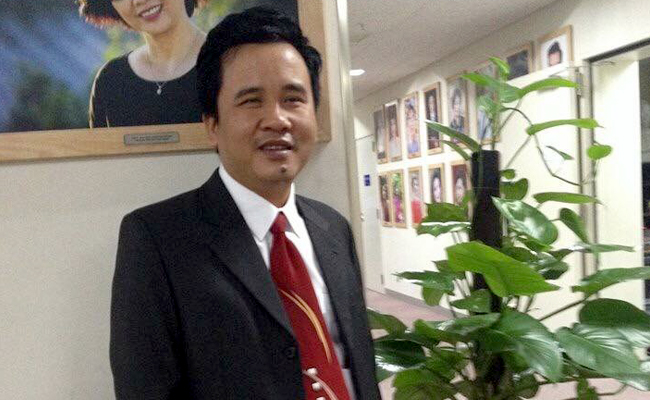 Hoàng Xuân Hạnh - Hoàng Kim: Doanh nhân người khiếm thị được biểu dương năm 2018
Hoàng Xuân Hạnh - Hoàng Kim: Doanh nhân người khiếm thị được biểu dương năm 2018
-
 Tôi mách bạn 6 Giải pháp hàng đầu để trở thành chuyên gia trong trị liệu: chữa bệnh và làm đẹp
Tôi mách bạn 6 Giải pháp hàng đầu để trở thành chuyên gia trong trị liệu: chữa bệnh và làm đẹp
-
 Hoàng Kim Massage thông kinh lạc toàn thân thải độc tố cơ thể, phục hồi sức khỏe, thổi bay những cơn đau bằng Công nghệ điện sinh học DDS
Hoàng Kim Massage thông kinh lạc toàn thân thải độc tố cơ thể, phục hồi sức khỏe, thổi bay những cơn đau bằng Công nghệ điện sinh học DDS
-
 Tẩm quất người mù Hoàng Kim tổ chức lớp Tập huấn kỹ thuật massage làm đẹp da mặt, massage giảm mỡ bụng cạo gió, giác hơi ống trúc cho nhân viên
Tẩm quất người mù Hoàng Kim tổ chức lớp Tập huấn kỹ thuật massage làm đẹp da mặt, massage giảm mỡ bụng cạo gió, giác hơi ống trúc cho nhân viên
-
Góp máy tính cho người khuyết tật
-
 Chương trình tài trợ 1000 máy xông hơi cho thành viên hội người mù việt nam
Chương trình tài trợ 1000 máy xông hơi cho thành viên hội người mù việt nam
-
.jpg) Những ngón tay dệt nên thần thoại
Những ngón tay dệt nên thần thoại
-
 Quyển sách: Món ngon ngày tết
Quyển sách: Món ngon ngày tết
-
 Giám đốc Trung tâm Hoàng Kim được ghi nhận là thành viên tích cực của Hiệp hội thương mại điện tử Việt Nam (năm 2012)
Giám đốc Trung tâm Hoàng Kim được ghi nhận là thành viên tích cực của Hiệp hội thương mại điện tử Việt Nam (năm 2012)
-
video người mù vượt qua bóng tối (P1) (năm 2012)
-
 Giới thiệu 2: Đĩa âm nhạc tẩm quất người mù Hoàng Kim
Giới thiệu 2: Đĩa âm nhạc tẩm quất người mù Hoàng Kim
-
Tuyển dụng nhân viên làm tẩm quất ở Hoàng Kim
-
 Người giàu không ở... hai con mắt
Người giàu không ở... hai con mắt
-
Biển tẩm quất người mù bị trịch thu vì ảnh hưởng đến làng văn hóa
-
 Những ngón đàn xuyên suốt màn đêm
Những ngón đàn xuyên suốt màn đêm
-
.jpg) Hoàng kim trước thềm xuân mới.
Hoàng kim trước thềm xuân mới.
-
 Massage của người khiếm thị từ góc nhìn của một người “ngoại đạo”
Massage của người khiếm thị từ góc nhìn của một người “ngoại đạo”
-
 Xoa xát mắt để phòng cận thị và hoa mắt ở tuổi già
Xoa xát mắt để phòng cận thị và hoa mắt ở tuổi già

UNIT 17: Simple future (tương lai đơn giản)
Topic 14: Jobs
I. Grammar
1.Form: Will/shall + infinitive verb
- Examples:
- Positive sentence: She will be an artist.
- Negative sentence: She will not be an artist.
- Yes/no question: Will she be an artist? -Yes, she will./No she won’t.
- Question word: When will she be an artist? -In the future.
- Watch out!
I will-I’ll, will not-won’t, shall not-shan’t
2. Usage
a) Future actions happen without the speaker's intention (birthday, weather …)(các hành động trong tương lai xảy ra ngoài dự định của người nói)
- Examples:
- The sun will shinetomorrow.
- Peter will become 15 years old next Tuesday.
b) Predictions, assumptions (dự đoán trước, giả định):think, hope, be sure, be afraid...
- Examples:
- I think Sue will arrivein Paris at 6 pm.
- He’s afraid that he won’t pass the exam.
c) Sudden actions/decisions, not planned(hành động, quyết định nhất thời, không được chuẩn bị trước)
- Examples: Hang on! I'll have a word with you in one minute.
d) Offers (đề nghị)
- Examples: Don’t worry. I’ll help you.
II. Exercises
1. Fill in the simple future form of the verbs in brackets.
a. Tim … the lawyer about his problems. (not / to tell)
b. Tomorrow it … in the north-west. (to rain)
c. You … the vase on the shelf. (not / to reach)
d. I hope I … the train to Manchester. (not / to miss)
e. My friend … a cook in a famous hotel next month. (to be)
f. Hey John! Wait a minute. I … a word with you. (to have)
g. She … her hair green. (not / to dye)
h. He … breakfast tomorrow morning. (not / to prepare)
i. She … her boss next week. (to contact)
j. I think you … this job as a receptionist in that company. (to get)
l. The manager … trees in front of the office building. (not / to plant)
m. Melissa … jeans at her party. (not / to wear)
n. They … at about 6 pm. (to arrive)
o. My friends … in a city. (not / to live)
p. The teacher … this exercise. (to explain)
q. He … the bottle of water. (to drop)
r. We … about the bad weather. (not / to worry)
s. I … in this lake. (not / to swim)
t. Lots of accidents … in that weather. (to happen)
u. I promise I … mum that you broke the vase (not / to tell)
2. Read the situations and rewrite sentences
a. It’s a bit cold. You decide to close the window. You say: I think …
b. You are feeling tired and it’s quite late. You decide to go to bed. You say: I think …
c. A friend of yours wants to drive you in his car but you decide to walk. You say: Thank you but…
d. You arrange to play tennis today. Now you decide you don’t want to play. You say: I don’t think …
e. You want to go swimming. Now you don’t want to go. You say: I don’t think …
f. You and your friend want to do something this evening but you don’t know what. You ask your friend: What shall …?
g. You try on a jacket in a shop. You are not sure whether to buy it or not. You ask a friend for advice: … it?
h. It’s Ann’s birthday next week. You want to give her a present but you don’t know what. You ask a friend for advice: …?
i. You and a friend are going out. You can’t decide to go by car or to walk. You ask him: …?
j. Your friend wants you to phone him later. You don’t know what time to phone him. You ask him: …?
3. Which one is correct?
a. “Do you call Britney?” “Oh, sorry, (I call / I’ll call) her right now.”
b. I can’t meet you tomorrow afternoon. (I’m playing / I’ll play) tennis.
c. “(I meet / I’ll meet) you outside the hotel in half an hour, ok?” “Yes, that’s fine.”
d. “I need some money.” “Ok, (I’m lending / I’ll lend) you some. How much do you need?”
e. (I’m having / I’ll have) a party next Saturday. I hope you can come.
f. “Remember to buy a newspaper when you go out.” “Ok, I (don’t forget / won’t forget).”
g. What time (does your train leave / will your train leave) tomorrow?
h. (“Are you doing / will you do) anything tomorrow evening?” “No, I’m free. Why?”
i. I don’t want to go out alone. (do you come / will you come) with me?
j. It’s a secret between us. I promise I (don’t tell / won’t tell) anybody.
4. Complete the sentences with “I’ll” and a suitable verb
a. I’m too tired to walk home. I think…
b. “It’s a bit cold in this room.” “Is it? … on the heating then.”
c. “We haven’t got any tea.” “Oh, really … and get some”
d. “Do you want me to wash the dishes?” “No, it’s all right … it.”
e. “I don’t know how to use this computer.” “Ok … you.”
f. “Would you like tea or coffee?” “…coffee, please.”
g.“Goodbye! Have a nice holiday.” “Thanks. …you a postcard.”
h. Thank you for lending me your camera. … it back to you on Monday, ok?
i. “Are you coming with us?” “No, I think … stay here.”
j. “Please don’t tell mum.” “Ok, I … your secret if you do all the house work this week.”
5. Put the verbs into their correct form to complete the sentences, using present simple and simple future.
a. The train … 11:45. (to leave)
b. We … dinner at a nice restaurant on Saturday. (to have)
c. It … in the mountains tomorrow evening. (to snow)
d. On Sunday at 8 o'clock I … my friend. (to meet)
e. They … to London on Friday evening. (to fly)
f. Wait! I … you to the station. (to drive)
g. The English lesson … at 8:45. (to start)
h. I … my sister in April. (to see)
i. Look at the clouds-it … in a few minutes. (to rain)
j. Listen! There's someone at the door. I … the door for you. (to open)
III. TOPIC 14: Jobs
In a pre-vocational class.
Teacher: “You will graduate in 3 months. Before you graduate, I will tell you something about the labour market; so that you will have a short overview about what you’ll do in the future.”
Leo: “Teacher, what is the labour market?”
Teacher: “The labour market is a market for all people who want a job. You can find almost all the jobs there: engineer, manager, doctor, teacher....”
Nancy: “I don’t know what job I want to choose now. When I was 10 years old, I wanted to become a nurse, but now, I want to become a lawyer. Will you give us advice?”
The teacher: “Yes I will. Before you choose the right job, you should think about: Which jobs do you like, what are you good at, what are your qualities, which company do you want to apply for, do you want a high salary... To know what you would be good at and enjoy to do, you need to understand yourself”.
Kathy: “Teacher, what are the best career choices in our economy today?”
Teacher: “Uhm, it's a matter of what fits you. Nowadays, many jobs are available in our society such as teacher, designer, director, journalist, tourist guide, not many people want to become a farmer or porter because the salary is very low. Almost all jobs request trainings.”
Frank: “What should we learn?”
Teacher: “From now on, you should learn as much skills as possible. E.g. computer skills, English skills, teamwork skills.... those are very important when you apply for a job because in the interview, there will be questions such as: which skills do you learn in your university or in your college, are you good at listening, speaking, reading and writing? Do you speak English fluently, can you use Microsoft Word, Excel and so on”
Questions:
1. What is the labour market?
2. What is the teacher’s advice?
3. Make a list of all jobs names in the text and describe their job.
Ý kiến độc giả
Các tin liên quan
- UNIT 1: Let’s learn English (học tiếng Anh)
- UNIT 2: Personal pronouns and ”to be”
- UNIT 3: Numbers (số)
- UNIT 4: Possessives (sở hữu) and "this, that, these, those”
- UNIT 5: Singular and plural (số ít và số nhiều)
- UNIT 6: Reflexives (đại từ phản thân)
- UNIT 7: Articles (mạo từ)
- UNIT 8: My day
- UNIT 9: Auxiliary verbs (trợ động từ) and sentence types (loại câu)
- UNIT 10: Present simple
Ảnh & vi deo sự kiện
-

Dự án tài trợ máy xông hơi cho Hội ng...
-

Hoàng Kim ra mắt Công ty cổ phần tư v...
-
Sinh nhật Website Hoàng Kim tròn 1 tu...
-

Tẩm quất người mù Hoàng Kim với công...
-
Kỷ niệm ngày người khuyết tật Việt na...
-
.jpg)
Tổng kết năm 2010 của Trung tâm Hoàng...
-
Tin nhanh
-
.jpg)
Sản phẩm - Dịch vụ
-
Khách hàng thân thiện
-

Nhân viên Hoàng Kim
tin tức mới
-
 Hoàng Xuân Hạnh - Hoàng Kim: Doanh nhân người khiếm thị được biểu dương năm 2018
Hoàng Xuân Hạnh - Hoàng Kim: Doanh nhân người khiếm thị được biểu dương năm 2018
-
 Doanh nhân khiếm thị tâm huyết / Chàng trai khiếm thị thành lập doanh nghiệp hỗ trợ nghề
Doanh nhân khiếm thị tâm huyết / Chàng trai khiếm thị thành lập doanh nghiệp hỗ trợ nghề
-
 Tôi mách bạn 6 Giải pháp hàng đầu để trở thành chuyên gia trong trị liệu: chữa bệnh và làm đẹp
Tôi mách bạn 6 Giải pháp hàng đầu để trở thành chuyên gia trong trị liệu: chữa bệnh và làm đẹp
-
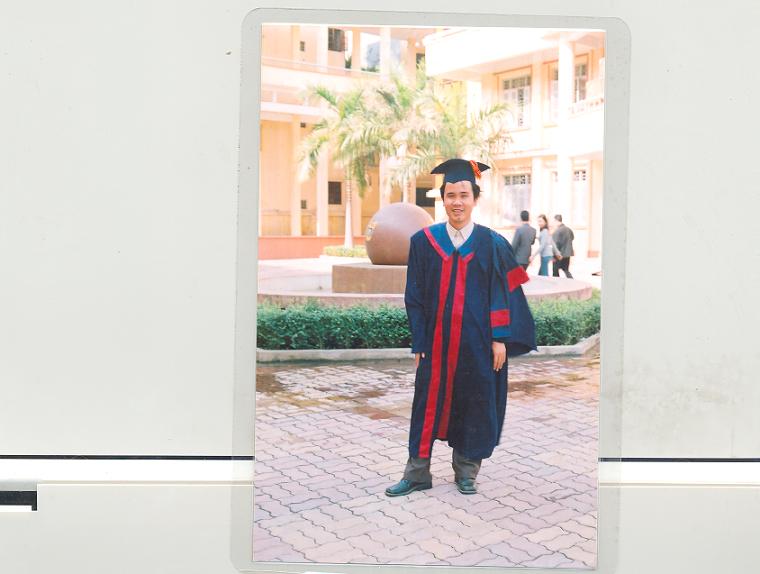 Giáo trình dạy học DDS – Điện sinh học
Giáo trình dạy học DDS – Điện sinh học
-
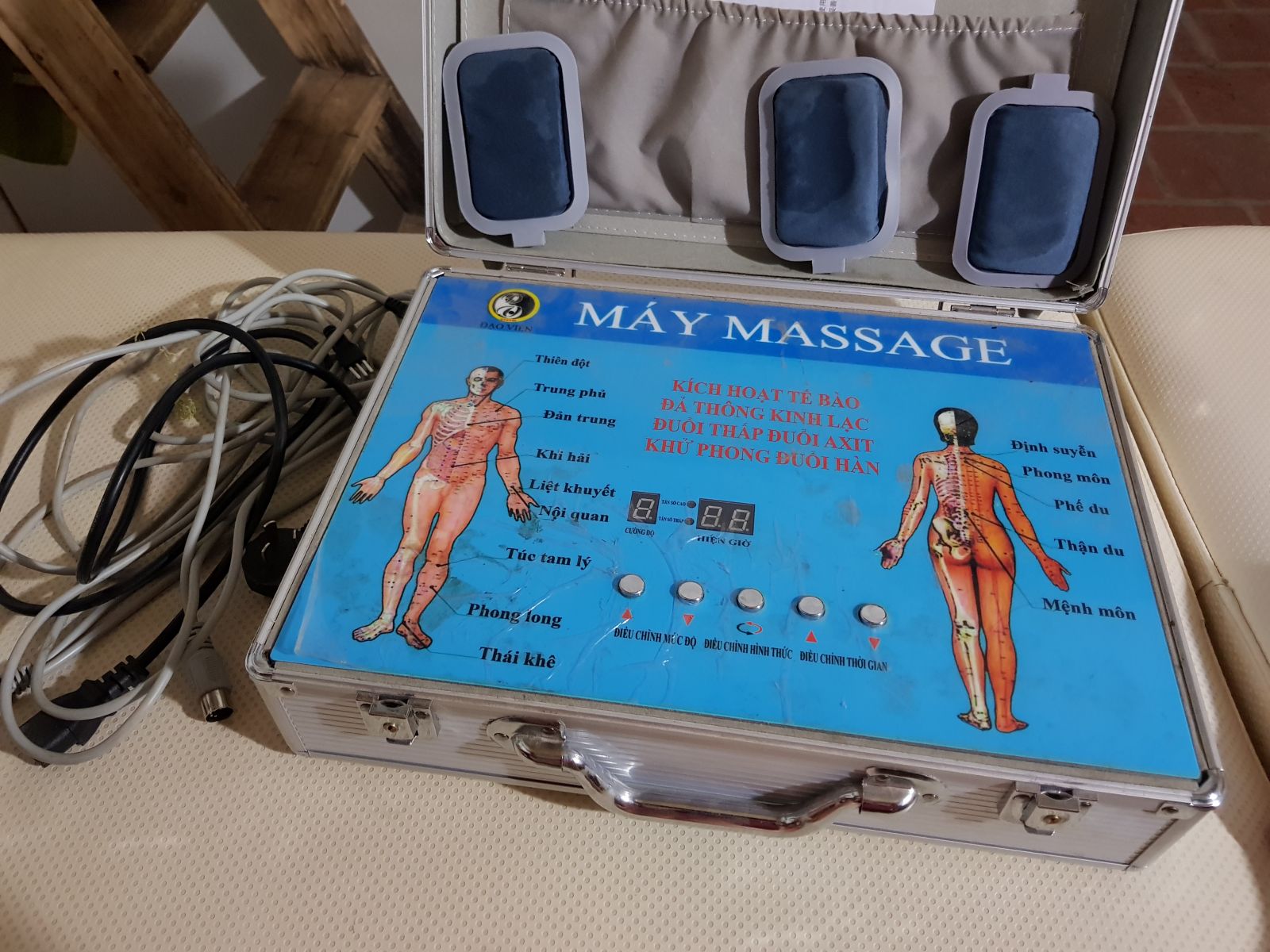 Ưu thế nổi bật của công nghệ DDS – Điện sinh học trong chữa bệnh và làm đẹp
Ưu thế nổi bật của công nghệ DDS – Điện sinh học trong chữa bệnh và làm đẹp
tin tức xem nhiều
Ủng hộ từ thiện



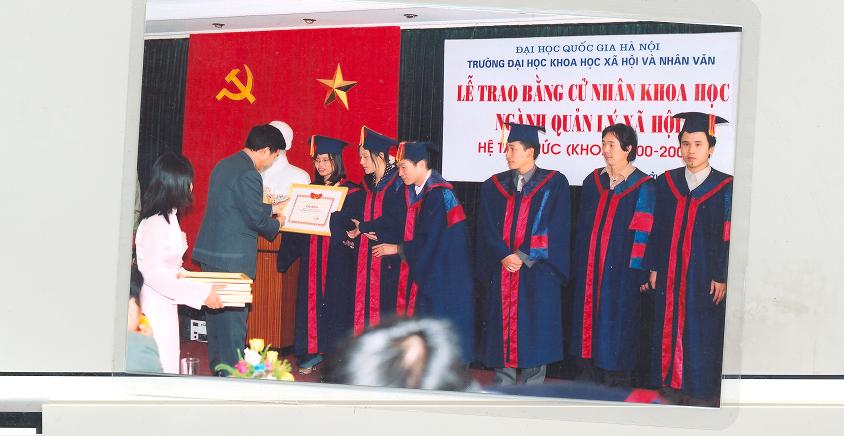



.JPG)

.JPG)

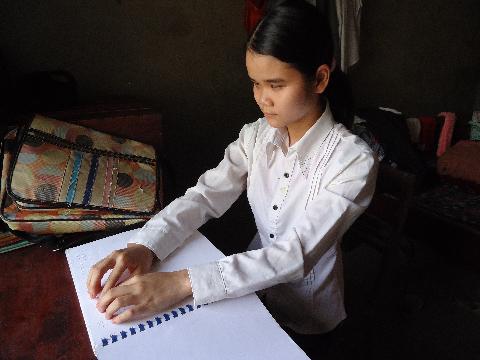

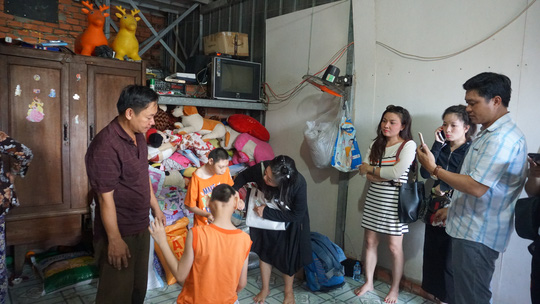
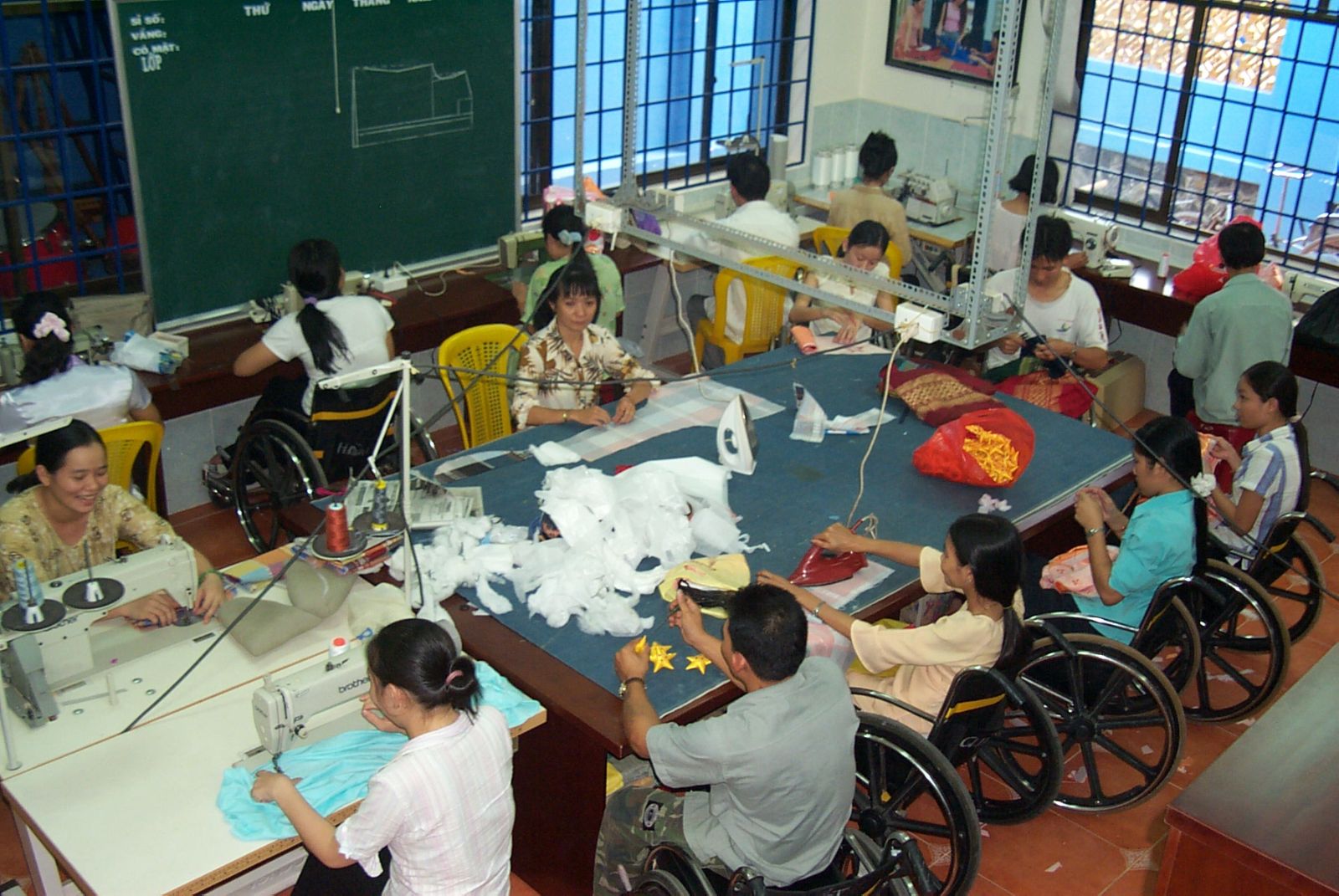



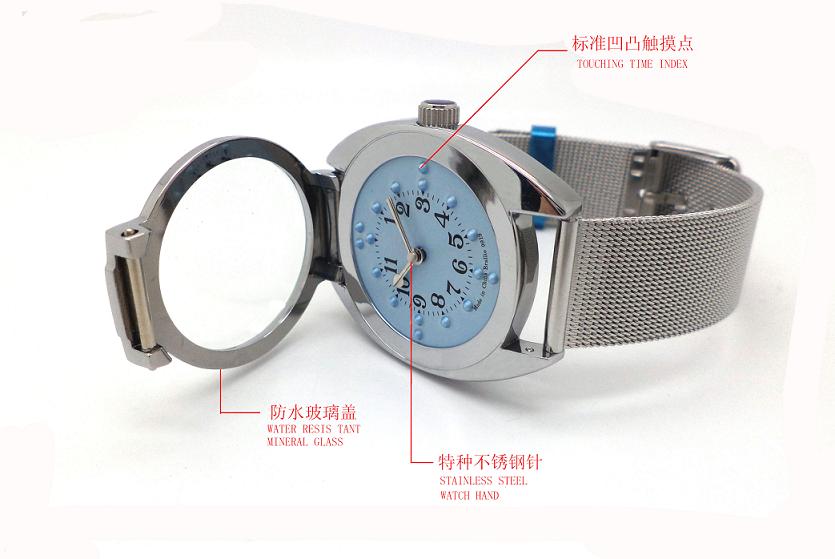
Bình luận